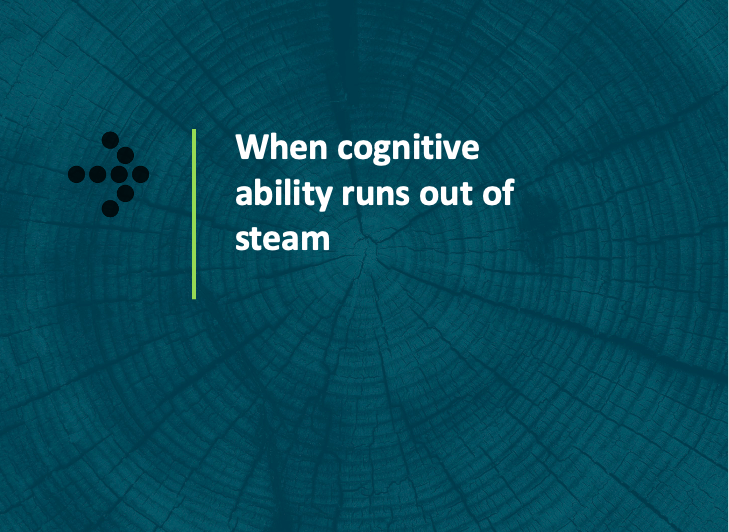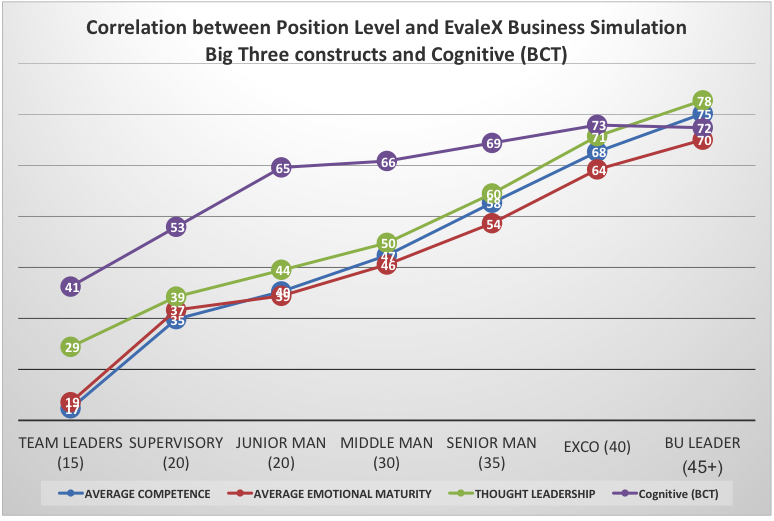When cognitive ability runs out of steam

Cognitive testing has long been the cornerstone in any assessment process when evaluating and promoting candidates at all levels in an organisation. But although cognitive ability is a good indicator for career progress, its predictive value starts losing efficacy as candidates move to higher levels of work.
Evalex recently analysed the assessment results of thousands of managers and business leaders assessed through a wide range of assessment tools and correlated the data with the level of position at which each person effectively functioned. Some very interesting findings emerged.
It is well known in the human capital management industry that most companies and industrial psychologists place cognitive testing at the heart of their assessment processes, mainly appointing and promoting people with higher cognitive functioning.
However, the Evalex research found that while cognitive ability drives career progress form team leader to supervisor to junior management level, it eventually plateaus, and then runs out of steam as a driver for career progression.
The results, plotted in the graph below, show cognitive ability plateauing at middle management level showing no significant progressive increase in ability for those who did move to more senior roles.
So what took over as the indicator for career progression or potential to function at increasingly higher levels of complexity? Answer: Leadership competence, thought leadership and emotional maturity – which we at Evalex call the Big Three.
Unlike cognitive and personality constructs, the Big Three are not assessed through psychometric testing but rather through assessment centre technology. When assessing the Big Three competencies, we immerse candidates in simulated management situations and observe their responses.

The graph shows that, unlike cognitive ability, the Big Three progressed evenly from the lowest levels of supervision to the highest levels of leadership. This slope achieved a correlation of 0,65.
Why is this? Because the modern cognitive assessment tools, like the more traditional forerunners, use a context of assessment quite different to the challenges a manager has to deal with in real life. This leads assessors to make inferences in a modern workplace environment based on outmoded patterns of behaviour.
The management simulation in our assessment centre technology does not make these inferences since it observes and evaluates behaviour within a context that simulates the managerial world of today.
In order for leaders to be identified and groomed for today’s world of work, they should be assessed in today’s work environment according to the Big Three capabilities of leadership competence, thought leadership and emotional maturity. Cognitive ability will only get them so far.